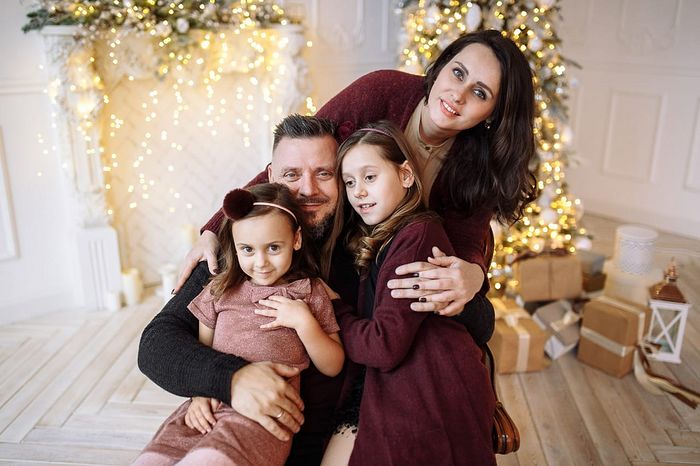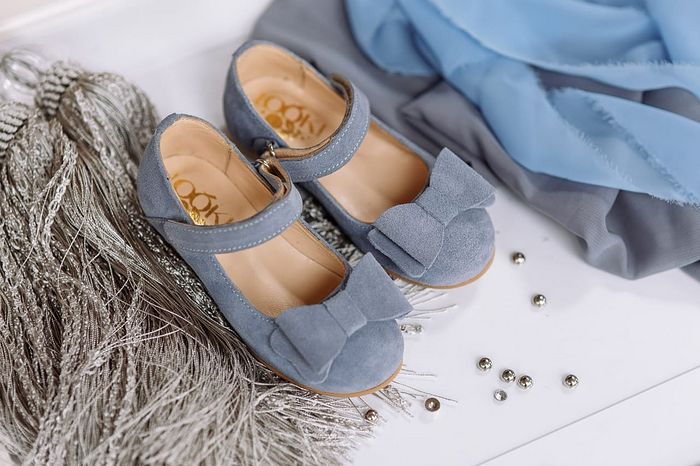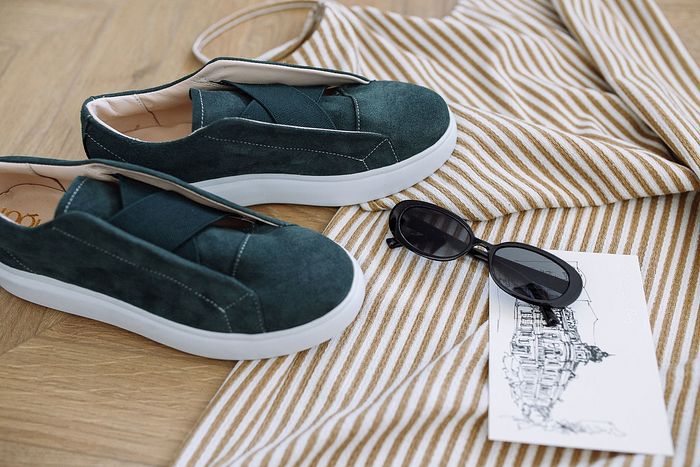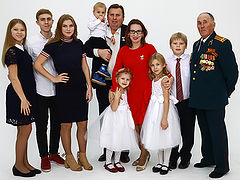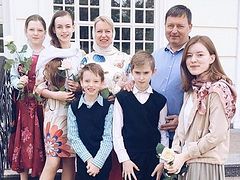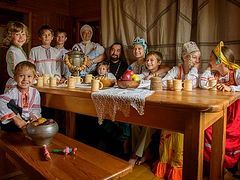Three years ago, Andrei Shumilin and his wife Alena opened a family shoe workshop in the city of Rostov-on-the-Don. They sell both ready-made and tailor-made shoes. In Andrei’s view, the situation of “no work” is surmountable, provided that you have ideas and the desire to implement them.
The sphere of activity: light industry.
Shumilin Andrei Grigoryevich, forty-three, a marketing specialist, an events manager.
—Andrei, you have worked in the sphere of events management for many years. How did you conceive of the idea of making shoes on your own?
—My spouse and I are creative people, and whenever any problem comes up, we find an unconventional solution to it. We have two daughters, Yaroslava and Vasilisa, and we couldn’t find shoes that would suit them perfectly for a long time: their fasteners and arches were inconvenient or the color was unattractive… We started considering making shoes for our daughters on our own. Perhaps we would not have proceeded to implementing this idea if one day I had not met a man who had been engaged in manufacturing for a long time. We live in Rostov-on-the-Don; there are a lot of workshops in the city that make shoes for the big chains. I asked my new acquaintance if he could make a couple of models using our designs. “Let’s have a try,” he replied.
Alena and I thought up some small shoes, drew them and chose materials and color.
The contractor helped us get the idea up to scratch; we prepared pilot models. They turned out good, and we thought: Why not open our own online shop where our shoes would be sold? After all, we were not the only people who had difficulty finding good quality shoes! We created our website and set to work.
—What did you need to organize a new business? A warehouse to store finished shoes in, for instance?
—We seldom sell ready-made shoes. We have self-design facility on our website: buyers make shoes themselves by choosing various criteria. Firstly, models: we have around eight basic models. Secondly, colors: we have over ten options. Thirdly, materials: leather or suede, velour or varnish. And, fourthly, decorative elements. Shoes are custom-made for each individual buyer according to their preferences. And we have a very wide range of sizes; for example, almost no one makes size 20 in Russia—we are the only exception. We can’t say we have a factory in the full sense: we are a custom shoe workshop.
Shoe making is not our basic activity, yet it is not a hobby. For my wife and I it is a full-fledged second job and it makes up about half of our family income. As time goes by, we get more and more orders; we never stop at what has been accomplished and are always trying to think up something new. This winter launched a series of warm fur-lined boots.
—How many orders can a family workshop execute?
—We sew 2,000–2,500 pairs per year. We receive orders from all over Russia, mostly from the cities with over a million inhabitants: Moscow, St. Petersburg, Nizhny Novgorod, Ekaterinburg, Kazan… There are frequent orders coming from the south of Russia: Sochi, Krasnodar, etc. Of course, a lot depends on how much you promote your website. Formerly you had to appeal to bloggers for this purpose, but now you don’t need to. There are lots of services that help you implement your project. The optimal investment is target advertising—that is, advertising offered to your target audience on the basis of the data analysis of internet users.
—What problems did you have to face when organizing the new business?
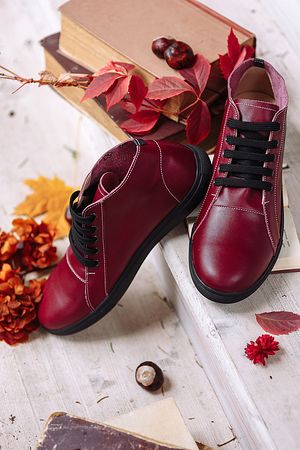 —The main problem is the lack of high-quality components we can’t do without. We can say that we are in the process of solving this problem. We have to invent a lot, “re-invent the wheel from scratch” and find contractors who are ready to meet us halfway. Our orders are too small for even medium-sized workshops, so we have to deploy the power of persuasion to gain our purpose. My other half and I have much experience in communicating with people; we have worked as events managers for years, so we can find arguments and agree on unusual orders with people who are used to working according to a certain pattern. This pattern is from the 1990s cooperatives and it does not work for us. We don’t need mass-produced articles—we need tailor-made articles. For instance, the same factory makes soles of a specific type only for us. These soles are unique in their way—we elaborated them and chose the necessary materials… We use threads of the same color in sewing all our shoes—that is our distinctive feature; and interior trim is always made of skin-colored leather too. Our shoes are always beige on the inside just as Christian Louboutin shoes always have red soles.
—The main problem is the lack of high-quality components we can’t do without. We can say that we are in the process of solving this problem. We have to invent a lot, “re-invent the wheel from scratch” and find contractors who are ready to meet us halfway. Our orders are too small for even medium-sized workshops, so we have to deploy the power of persuasion to gain our purpose. My other half and I have much experience in communicating with people; we have worked as events managers for years, so we can find arguments and agree on unusual orders with people who are used to working according to a certain pattern. This pattern is from the 1990s cooperatives and it does not work for us. We don’t need mass-produced articles—we need tailor-made articles. For instance, the same factory makes soles of a specific type only for us. These soles are unique in their way—we elaborated them and chose the necessary materials… We use threads of the same color in sewing all our shoes—that is our distinctive feature; and interior trim is always made of skin-colored leather too. Our shoes are always beige on the inside just as Christian Louboutin shoes always have red soles.
We don’t want to cooperate with foreign companies, though sometimes it is far more profitable and convenient. We have faith in Russian business and try to support Russian manufacturers as much as possible; so we try to find Russian suppliers. I believe it is possible to make everything of high quality in our own country.
—Does the State support you, or impede your progress?
—The State doesn’t understand small business well enough in some respects. But I realize what the reason is behind this attitude, though I don’t want to talk about this. Our small company is not in a critical situation to seek the State help; we believe in our strength and in God. We are not engaged in monopoly branches, so no one is really interested in us. I am happy that I was born in this country and have walked a specific path with my family. I am glad the State does not prevent me from doing what I enjoy doing, and I pay the required amount taxes quite easily. Everything is going fine at the moment, and I believe the situation will only improve.
—What is customer feedback on your products?
—Every second buyer comes back to us for a new pair, which indicates that our products are in demand. They leave nice comments on our Instagram page. True, there are opposite situations: there are always two or three percent of the customers who are not satisfied with something. We try to show consideration to dissatisfied customers and agree on an exchange. We never leave them on the sidelines and try to see that everybody is content.
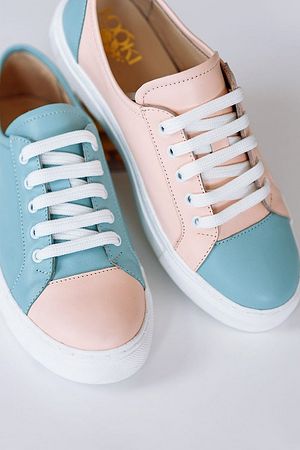 —Are you planning further development or will you just let things take their natural course?
—Are you planning further development or will you just let things take their natural course?
—You can’t build your business without any plans and ambitions. Once you have run out of ambitions, your business fades away. We want the number of our orders to reach a certain level but, at the same time, we don’t want to do too much. If our shoemakers do an excessive amount of work, the quality won’t be stable anymore. There is a certain level that we don’t want to exceed—and we are already close to it.
We are moving forward quite slowly. I hold that it guarantees the success of a business. Take any interesting company (no matter whether it developed in Russia or abroad)—all of them made progress gradually, step by step. Many want to invest one ruble and receive ten rubles overnight—but this is not how it works. A real, strong business develops gradually.
—What helps you at tough times?
—We all should believe in God, have faith in the place where we were born and raised, trust those around us, and move forward. There are a bundle of popular proverbs: “God helps those who help themselves”; “No pain, no gain”; “He who does not work, neither shall he eat”. What are they about? God won’t do the work for you; you may ask for His help, but you too must make efforts to provide for yourself and your family.
I give thanks to God for the opportunities He has given me and try to make the most of them.
There is no such thing as “no job”. If you have no job, then invent one! And, most importantly, we shouldn’t deceive people. The following Gospel words are close to my heart: …All things whatsoever ye would that men should do to you, do ye even so to them (Mt. 7:12). This is the basic principle of business and our family’s golden rule.

